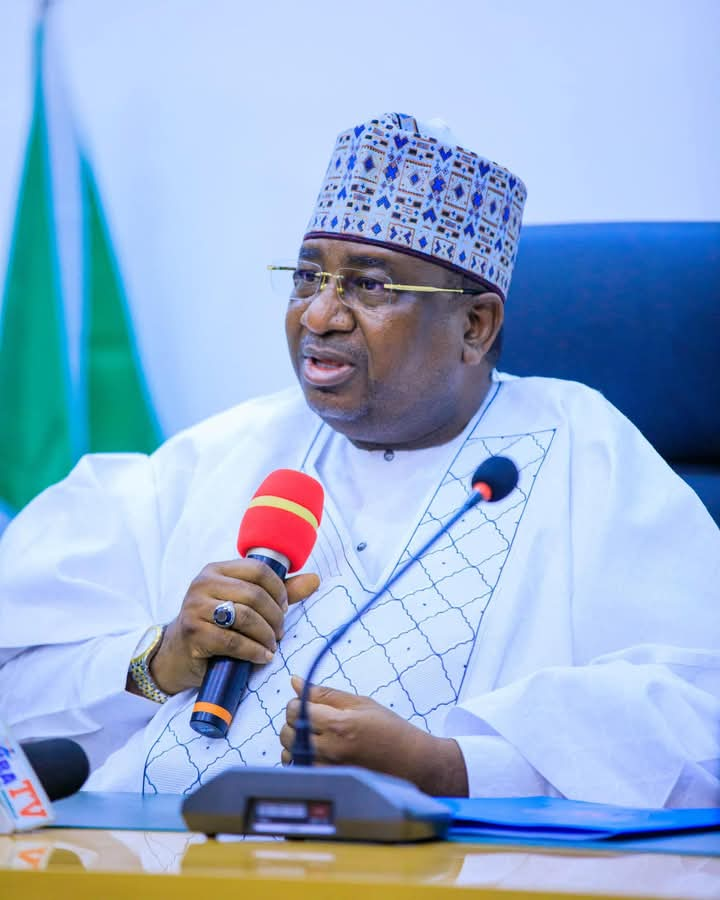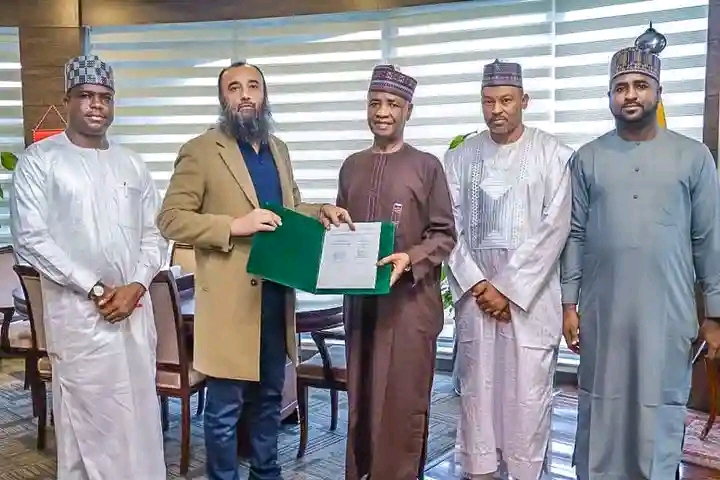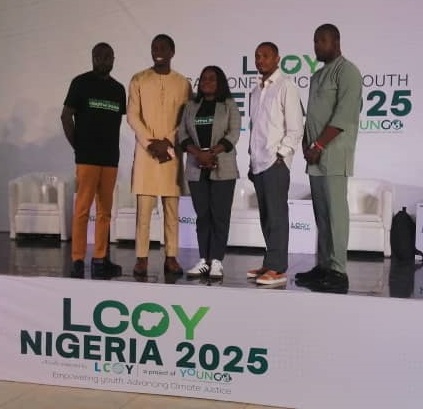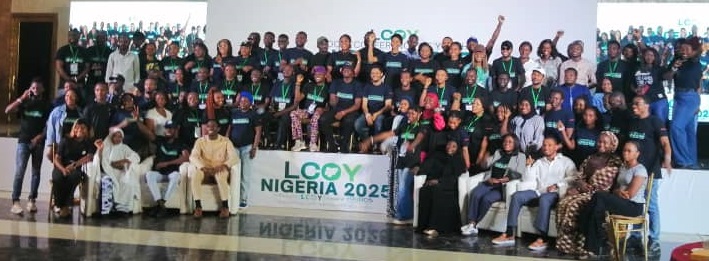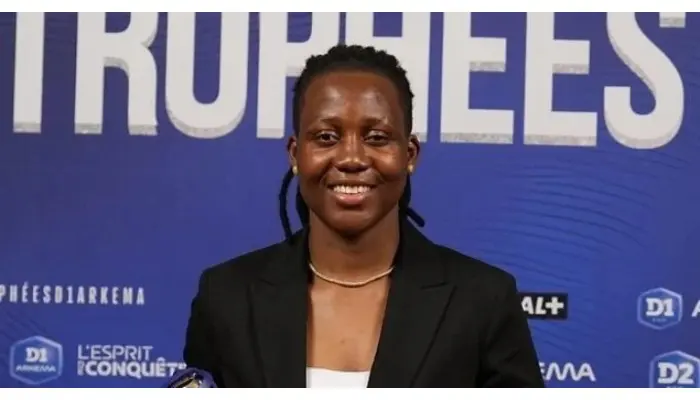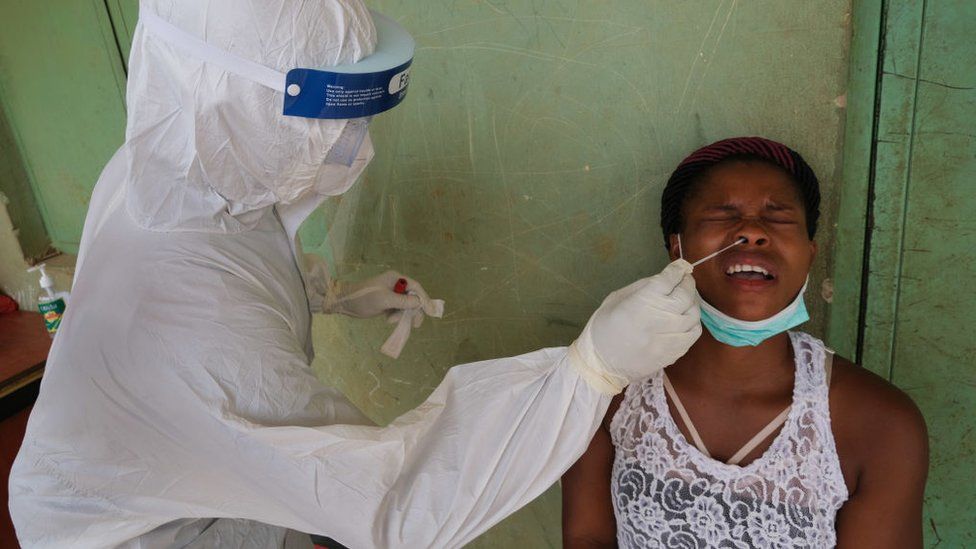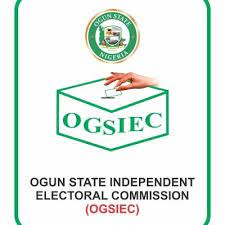By: Goodluck E. Adubazi, Abuja.
As Nigeria races toward its 2060 net-zero target, the nation’s young people—who make up nearly 70 percent of its population—are stepping forward with a unified blueprint for inclusive climate governance, at a two day Local Conference of Youth Nigeria – LCOY 2025 event organized by the YOTA and Actionaid Nigeria,
For the first time, youth groups across the six geopolitical zones have consolidated their fragmented efforts into a single national position on energy transition, land use, and climate justice.
The document, titled “Youth in Action Roadmap for Inclusive Climate Governance in Nigeria,” was developed with support from the Shehu Musa Yar’Adua Foundation and the African Policy Research Institute (APRI). It calls for statutory youth representation in climate policymaking, dedicated climate finance for youth-led enterprises, and integration of environmental education across all levels of the school system.
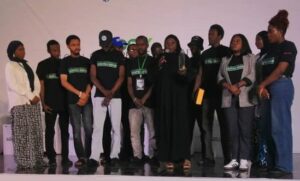
At the heart of the roadmap is a push to end the tokenistic participation of young people in Nigeria’s climate governance. The youth coalition is demanding the establishment of a National Youth Climate Council (NYCC) under the National Council on Climate Change, backed by law to advise government on policy and finance.
Standard Times Nigeria which has covered the event reports the plan also proposes Regional Youth Climate Councils (RYCCs) and Youth Climate Desks in key ministries—Environment, Agriculture, Power, and Finance—to embed youth voices in decision-making at all levels.
“Youth are no longer asking to be invited to the table; we are building our own,” said a youth representative from the South-West zone. “Climate policy that excludes those who will live with its consequences cannot be sustainable.”
Recognising that youth-led climate action depends on access to resources, the document recommends a Youth Climate Innovation Fund with regional allocations to support startups in renewable energy, waste recycling, and climate-smart agriculture.
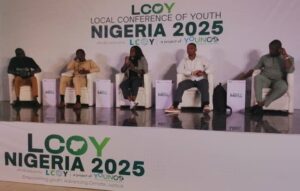
At least 25 percent of national and state climate funds, the youth propose, should be reserved for projects led by young people and women. The plan also calls for 60 percent of new green jobs under Nigeria’s updated Nationally Determined Contribution (NDC 3.0) to be allocated to youth, rising to 500,000 jobs by 2030.
Regional Green Innovation Hubs are proposed across Nigeria’s six zones to drive research, mentorship, and entrepreneurship in climate technology and sustainable agriculture.
The roadmap emphasises climate literacy as key to long-term transformation. It recommends mandatory climate modules in schools and NYSC orientation camps, and the creation of Climate Learning Centres in every local government area.
In agriculture, the youth propose scaling up climate-smart practices, precision farming, and youth participation in the Great Green Wall Initiative to restore degraded land and promote food security.
The youth framework also tackles environmental degradation and conflict in vulnerable regions such as the Niger Delta and the Lake Chad Basin. It calls for youth inclusion in adaptation and peacebuilding efforts, alongside a review of the NOSDRA Act to enhance corporate accountability for oil spills and environmental remediation.
To ensure transparency, the youth propose an open-access climate finance dashboard and annual National Youth Climate Forum to track government progress and ensure accountability in funding and implementation.
With the government’s Long-Term Low-Emissions Development Strategy (LT-LEDS) and ongoing NDC 3.0 updates, Nigeria faces pivotal policy choices that will shape its development for decades. As COP30 approaches in the Global South, youth advocates believe their unified voice could strengthen Nigeria’s negotiating power on the world stage.
“This is not just about advocacy—it’s about co-creation,” said another youth.



